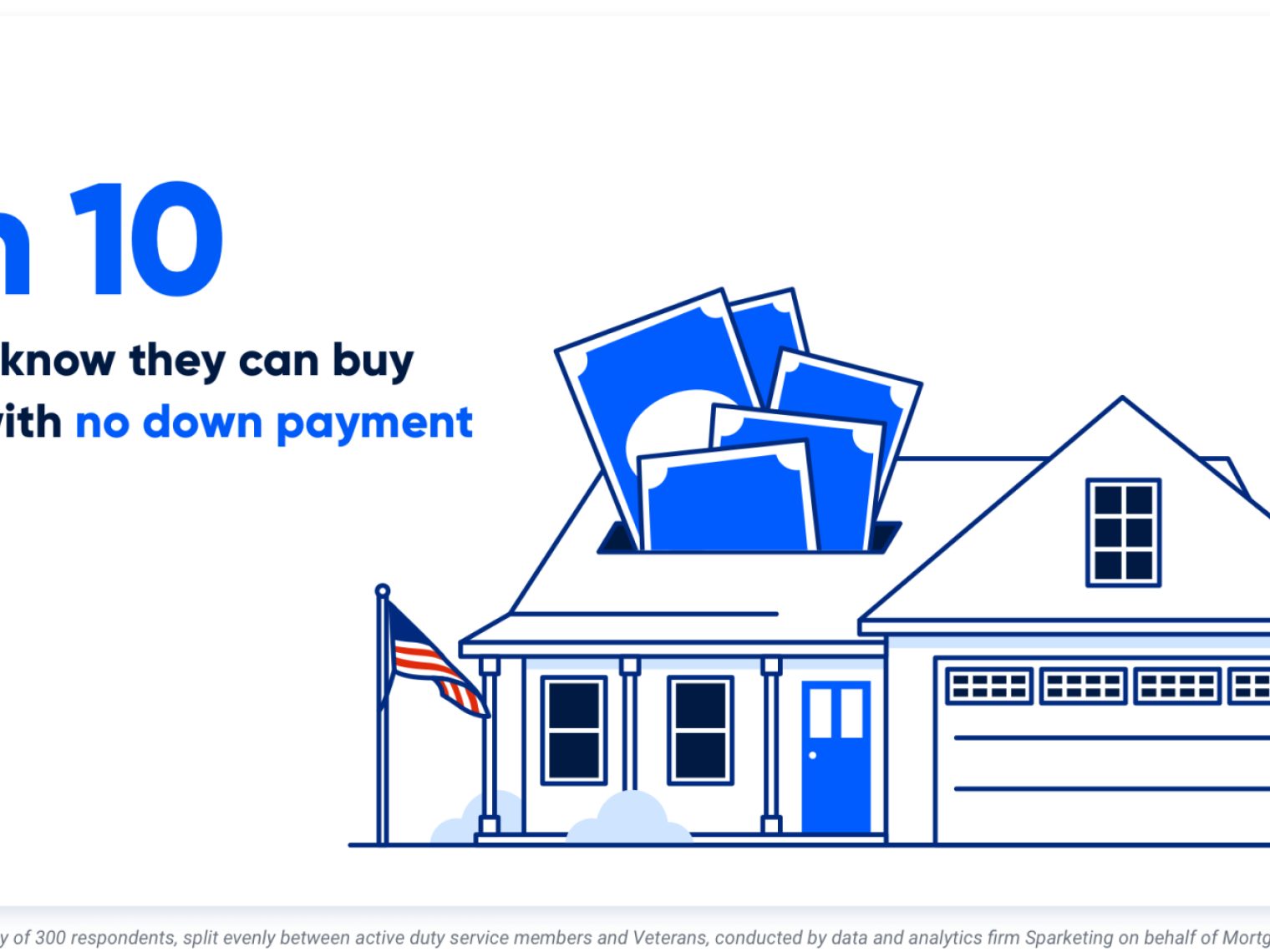The unbeatable benefits of the VA loan program aren’t bestowed on every property that catches a military buyer’s eye.
In order to obtain VA approval, every home must undergo a VA appraisal. Although the VA appraisal has a reputation for being rigorous, its intentions are honorable: ensuring that homes purchased by Veterans are fiscally and structurally sound.
So how hard is the VA appraisal? We'll explore three factors that can influence any VA appraisal: VA appraisal guidelines, how you lender can influence the appraisal and how to pass it.
How strict are VA appraisal guidelines?
Any appraisal will help a lender determine a property’s value. However, VA appraisals go beyond conventional appraisals by incorporating a second function: ensuring that homes meet the VA’s Minimum Property Requirements (MPRs).
Veterans need homes in good repair, not dicey money pits. In pursuit of that goal, MPRs establish basic standards for a home and its contents. Electrical and plumbing systems must be in good condition, roofs must be defect-free and basements must be dry. VA appraisal guidelines can be strict and prevent some fixer-uppers from passing the appraisal. Many of the guidelines can be frustrating for military buyers who are considering older homes in need of renovation.
Some MPRs are very specific, but others allow significant room for interpretation. The appraiser needs to determine if the home meets three main tenets: the home must be safe, structurally sound and sanitary. The VA instructs appraisers to watch for “defective construction,” but doesn’t specify what qualifies as “defective.” Properties must be free of safety hazards, but the VA stops short of providing a comprehensive list of safety threats.
The guidelines are likely vague for a reason. The appraiser is the "boots on the ground" for the VA. They are the ones who physically see the home, walk through it and assess whether it's safe. Every home is a little different and as a result the guidelines need to provide ample room for the appraiser to make a judgment call and determine if the home is safe.
If a home fails to meet the MPRs, the buyer will have to decide how they want to proceed. There are three main options:
- Ask the seller to pay for repairs
- The buyer paying for the repairs out of pocket
- Walking away from the deal
If you decide to tackle the repairs yourself, here are seven appraisal repair steps you can take.
VA Appraisal vs Conventional Appraisal
VA appraisal guidelines aren’t as different from modern conventional appraisal standards as they once were. Thanks to the housing market meltdown, some of the previous differences between VA and conventional appraisals have been leveled.
The biggest difference is VA appraisals are more in-depth and must meet MPRs. Conventional loans do not have specific MPRs to adhere to and look at the overall condition of the home and appliances.
VA lenders have always been hesitant to risk funds on ramshackle properties. However, more conventional lenders are headed in that direction and tightening strings for properties in need of serious repair.
How Lenders Can Impact Appraisals
The “toughness” of any particular appraisal also has a lot to do with a lender’s own policies. The VA appraisal is important to a lender. Properties that don’t meet all VA criteria are rejected by the program and can put a lender at risk. In issuing a VA loan, a lender can choose to add any number of property restrictions. Some lenders are extremely strict, while others are more accommodating.
For example, while the VA allows mobile home purchases through the VA loan program, many lenders refuse to extend financing on these properties. If a homebuyer wants to use their VA loan on a mobile home, they'll need to ask specifically whether their lender of choice offers this type of financing.
Best Practices to Pass a VA Appraisal
If you are considering a VA loan, make sure you’re up-to-speed with both the VA MPRs as well as any lender overlays. Pursuing an ineligible property that will fail the appraisal is a poor use of your resources and isn’t fair to your military clients. Provide the best service possible with a basic understanding of VA MPRs and VA loan criteria.
If the VA appraisal comes back lower than you expected, remember that you can challenge that appraisal with the Reconsideration of Value and a VA-savvy lender like Veterans United Home Loans can help guide you through the process.
You can speak with a Veterans United VA loan expert anytime at 855-524-7279.
We want to hear about your experience with VA appraisals. What advice would you recommend for buyers and fellow agents?
Related Posts
-
 VA Loan Down Payment RequirementsVA loans have no down payment requirements as long as the Veteran has full entitlement, but only 3-in-10 Veterans know they can buy a home loan with zero down payment. Here’s what Veterans need to know about VA loan down payment requirements.
VA Loan Down Payment RequirementsVA loans have no down payment requirements as long as the Veteran has full entitlement, but only 3-in-10 Veterans know they can buy a home loan with zero down payment. Here’s what Veterans need to know about VA loan down payment requirements. -
 5 Most Common VA Loan Myths BustedVA loan myths confuse and deter many VA loan borrowers. Here we debunk 5 of the most common VA loan myths so that you can borrow with confidence.
5 Most Common VA Loan Myths BustedVA loan myths confuse and deter many VA loan borrowers. Here we debunk 5 of the most common VA loan myths so that you can borrow with confidence.

